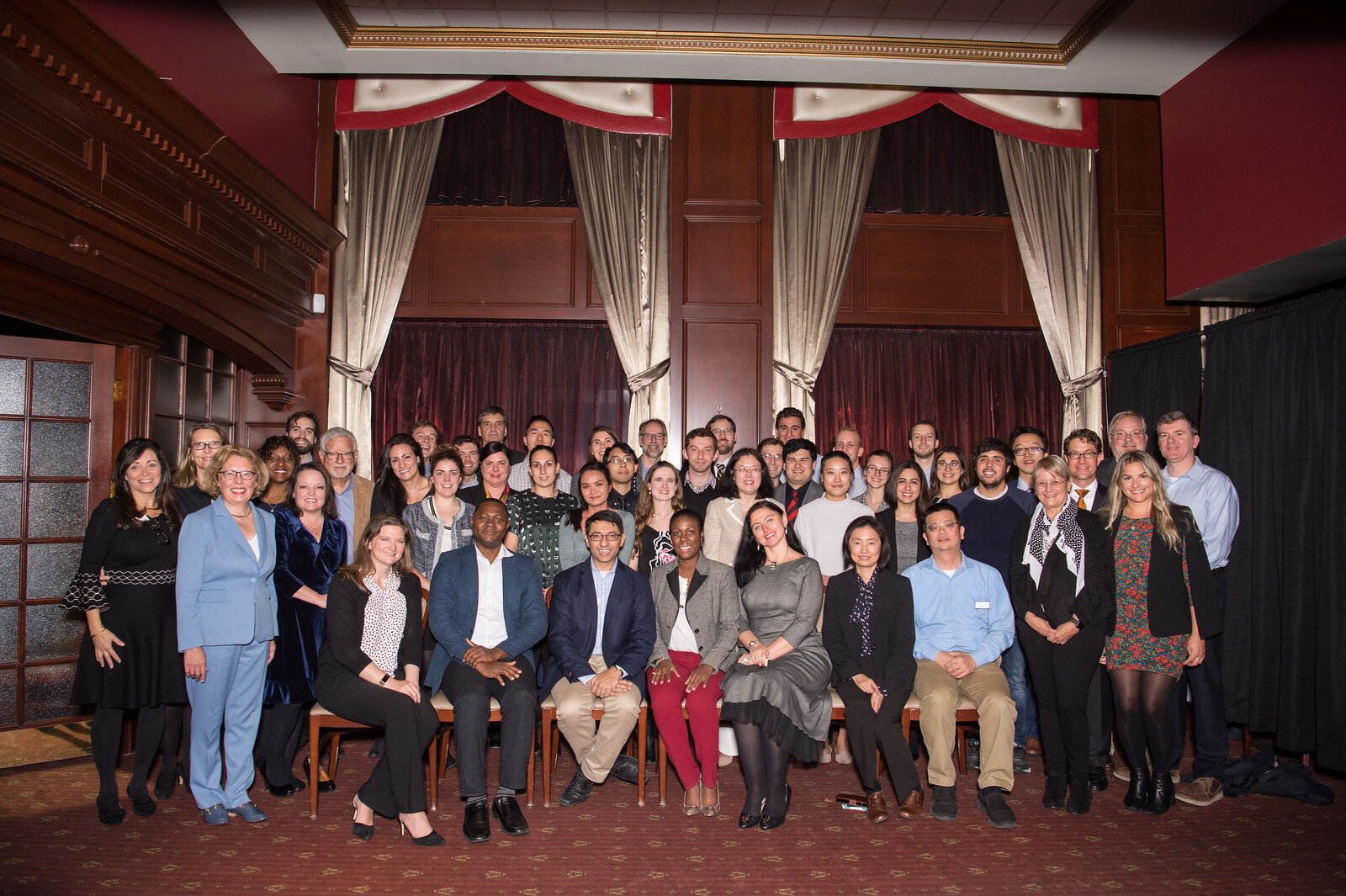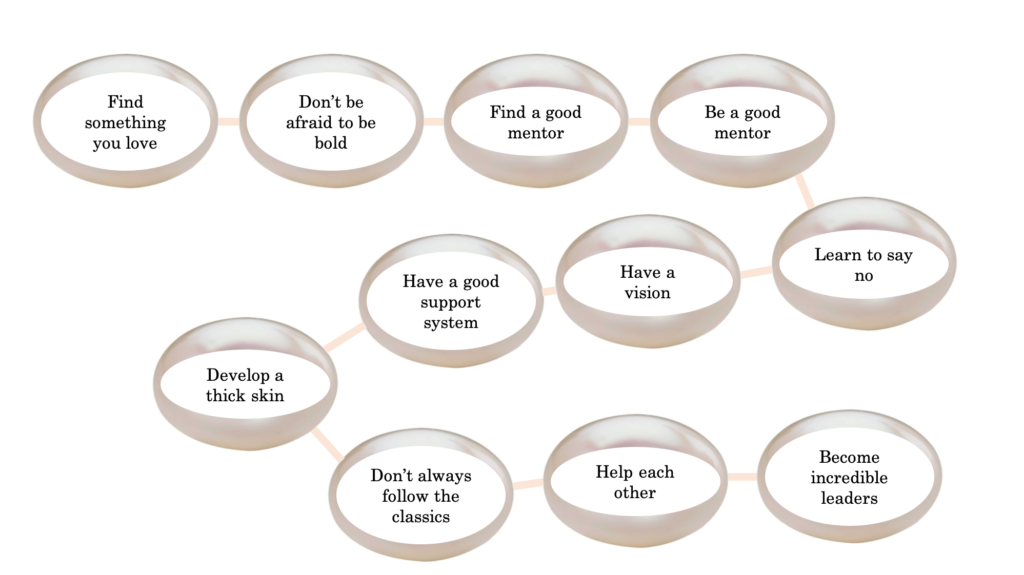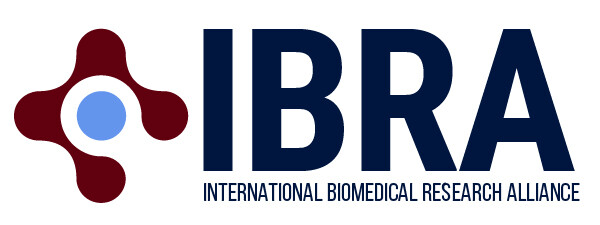
Life As A Zebra Hunter
By Joanna Patterson-Cross
“Medical students are often taught that, when they hear hoofbeats, they should think about common things, such as horses,” Dr. Wendy Chung began, “My career has been just the opposite and the only thing I really see are zebras.” During Dr. Chung’s keynote for the Lasker Lessons in Leadership, we heard the unraveling of this cryptic statement in her talk entitled: “Life Lessons from a Zebra Hunter.”
As a high school student, Dr. Chung had the opportunity to spend some time in a laboratory. Raised in South Florida at the heart of the citrus fruit industry, she was told to take a golf cart into a field to see what she could figure out. Fruit flies were a big problem for the citrus industry, and she decided that her science project would focus on why the fruit flies laid eggs in particular fruits. For that work she won first place in the Westinghouse Science Talent Search and met researchers at NIH during the weeklong activities in Washington, DC. She went on to study at Cornell University, the college with the best agricultural sciences. One summer she had the chance to return to NIH to work with Seymour Kaufman and to work on phenylketonuria – at the bench and with patients in the hospital. This exposure to patients completed the picture for her as she was able to experience the “soup to nuts” process: from seeing a patient in the hospital and taking blood samples to analyzing the biochemistry and genetics back in the lab. She realized that “banging your head against the wall for so many days, weeks and months” was worth it because someone’s life was truly dependent upon you. After this she decided to pursue an MD, PhD.
During Dr. Chung’s first year as a medical student, the Human Genome Project (HGP) was announced. While her professors disagreed with the concept of funding the HGP, her undergraduate major in economics gave her the courage to “follow the money.” She spent a lot of time throughout her training dreaming of how to apply the information that would come out of the HGP. She was fortunate to finish her training early, just when the HGP was nearing completion. Here, Dr. Chung gave us pearl of wisdom number 1: to skate to where the puck is going to be and become the leaders in the field. This was closely followed by pearl of wisdom number 2: to not necessarily follow the classics. For example, right now we are living in a wealth of data that needs to be analyzed. However, the real powerbrokers are going to be not only those who can code, but those who can additionally understand the biology.
For Dr. Chung, she was beginning her career at the frontier of genomics at a time when most genes had not yet been cloned. During graduate school, in order to continue to remain in touch with the medical side, she went on weekly clinical rounds with her mentor, Rudolph Leibel. On these rounds, she learned about rare diseases, and this was the start of her fascination with uncommon diseases, or “zebras.” While she was collecting zebras during her internship, she discovered pearl number 3: find the right person to help you with your journey. For Dr. Chung, it was her husband whom she described as an incredibly important part of her success. Being a planner, she started to determine where her life was going, for both work and family. Then something unexpected happened that turned her world upside down: the death of their second son. While his cause of death was never determined, she resolved to move her career to where it would have the biggest and most immediate impact on patients.
While working in the clinic, there were times when carrying out a critical genetic test for a patient was impeded due to gene patents, which caused the price of testing to become too costly. However, the worst situations were when a lab that held a gene patent shut down. This meant that no other labs could carry out the genetic test due to “cease and desist” orders, resulting in patients not being able to access critical genetic tests for over 2 years. In some cases, this caused patients to die. Dr. Chung couldn’t fathom why this should be allowed and decided to step in for the public good. After unsuccessful meetings with NIH and congressional staff, she was contacted by an ACLU lawyer, who agreed with her stance and saw gene patenting as a civil rights issue. After being heard in several lower courts, the case ultimately went to the Supreme Court, where the court ruled, in a 9 to 0 victory, that genes cannot be patented. Dr. Chung considered this to be one of her greatest accomplishments as a scientist, and it ushered in a new era for genomic medicine. “Without this victory, we would not have the ability to inform people about their genomes, and the genomics era we now live in would have been hampered,” she stated.
Dr. Chung went on to explain that in order for this progress to continue, we need to bring scientists and the public together; if we can’t get the public to understand what we are doing, we have lost half the battle. Therefore, she is striving to improve this connection by making complex topics accessible to the public. Indeed, her TED talk, “Autism – what we know (and what we don’t know yet),” has had 3.7 million views!
To be inspired, all of us have a role model to ask questions about how to make choices and, throughout this Lasker Lesson in Leadership, Dr. Chung gave us a necklace of pearls to take with us on our own zebra hunt.

